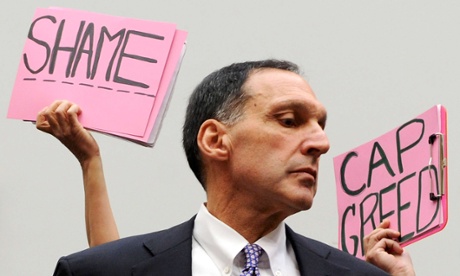In early 2007, the then chairman of the Federal Reserve, Ben Bernanke, dismissed the idea that the slowdown in the US housing market had profound implications. It was, according to the man running the world’s most powerful central bank, just a local affair.
Everybody knows what happened next. Within 18 months the local problem in the US subprime mortgage market had ballooned into the biggest global financial crisis since the 1930s. When Lehman Brothers went bankrupt 10 years ago this week, it was the catalyst for a month of turmoil in which no financial institution was considered entirely safe.
Inevitably, the anniversary of those tumultuous weeks in late September and early October 2008 has prompted speculation about whether it could happen again. And, if so, what will be the cause?
Looking around the global economy, there are plenty of potential candidates, including:
Debt
The 2008 crisis was caused by excessive debt levels, with low interest rates enabling households to borrow to consume while financial institutions borrowed to speculate. The appetite to borrow waned during the deep recession that followed the collapse of Lehman Brothers but the failure to deal with the root causes of the crisis has meant debt levels have since risen and are now higher – as a share of global gross domestic product – than they have ever been.
The financial system
There have been attempts to make the big multinational banks safer since their vulnerabilities were exposed in 2008. Banks now have to hold more capital which can act as a buffer in the event that they suffer the sort of losses on their investments as they did in 2008. But three problems remain: the banks have largely fended off pressure for the sort of structural reform that followed the Wall Street crash of 1929; banking has become even more concentrated; and risk has migrated from the more toughly regulated banks to other parts of the financial system, such as hedge funds.
Emerging markets
The 1990s and early 2000s saw dress rehearsals for the global financial meltdown in countries as far part as Mexico, Russia, South Korea and Argentina, and there are once again signs of trouble. Low interest rates and the process of money creation known as quantitative easing has meant capital has flowed into emerging markets looking for higher yields than have been on offer in the west. Servicing that borrowing is now becoming more expensive as global interest rates start to rise. The crises in Turkey and Argentina this year are unlikely to be the last.
Italy
Banks in the eurozone have made much less progress than their American counterparts in increasing their equity capital and as a result would be much more exposed in the event of a slowdown in activity, let alone a full-blown recession. Italy’s banks are particularly fragile. Jens Hagendorff, professor of finance at the University of Edinburgh Business School, says there is a “doom loop” between banks and the government because Italian banks are major buyers of Italian government bonds and even small losses on those bonds would cause banks to be insolvent. “What would follow will enter the history books like the Lehman bankruptcy”, Hagendoff says.
A trade war
For now, the global economy appears to be shrugging off the impact of Donald Trump’s protectionist measures but the real crunch point is likely to come in late 2019 and early 2020 when higher US interest rates start to bite and the impact of tax cuts fades.
China
Prompt and decisive action by Beijing helped the global economy through the worst of the 2008-09 recession but it was achieved through a credit binge and a package of public spending that dwarfed anything seen in the west. Much of the borrowing happened outside the regular Chinese banking system through so-called shadow banks. China’s growth remains solid and there are signs of it becoming better balanced, but in some respects it encapsulates the state of the world 10 years after Lehman: it solved one problem but only by creating another: it is awash in debt; its banking industry looks shaky; and it is acutely vulnerable to a full-scale trade war.











